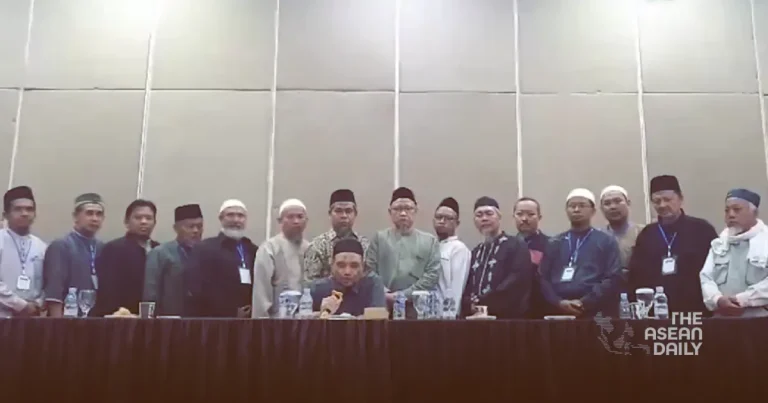4-7-2024 (JAKARTA) Key members of the notorious terror group Jemaah Islamiyah (JI) have announced its dissolution, marking a potential shift in Indonesia’s battle against extremism. The declaration, made at the National Counter Terrorism Agency in Bogor on 30 June, has sparked both cautious optimism and scepticism among security experts.
Abu Rusdan, a prominent JI leader currently serving time, spearheaded the announcement alongside other influential figures, including Para Wijayanto, one of South-east Asia’s most sought-after terrorists. The group expressed readiness to reintegrate into Indonesian society, pledging to align their educational curriculum with mainstream Islamic teachings and purge extreme content from their materials.
This unexpected move comes after years of concerted efforts by Indonesian authorities to dismantle JI’s operations. The group, founded in 1993 by clerics Abdullah Sungkar and Abu Bakar Bashir, has been responsible for numerous deadly attacks across the region, most infamously the 2002 Bali bombings that claimed over 200 lives.
While the dissolution announcement has been hailed as a significant breakthrough, security analysts remain wary. Dr Noor Huda Ismail, a visiting fellow at Singapore’s S. Rajaratnam School of International Studies, suggests that while the mainstream JI may indeed be moving towards legitimacy, splinter groups could emerge, potentially resorting to violence to demonstrate their commitment to jihad.
Mr Muh Taufiqurrohman, from the Jakarta-based Centre for Radicalism and Deradicalisation Studies, echoes these concerns, warning of the possibility of new organisations forming with ideological ties to JI. “Once JI, always JI,” he cautions, highlighting the enduring nature of extremist ideologies.
The declaration is seen as a triumph for Indonesia’s counter-terrorism unit, Detachment 88, which has long encouraged JI members to renounce their allegiance. Nasir Abas, a former JI regional commander, praised the unit’s efforts but warned against underestimating the group’s potential to resurge, particularly among younger members who may reject the senior leadership’s decision.
This development comes in the wake of a recent attack on a Malaysian police station in Johor, initially linked to JI but later attributed to a lone wolf with no current ties to the group. The incident serves as a stark reminder of the complex and evolving nature of extremist threats in the region.




